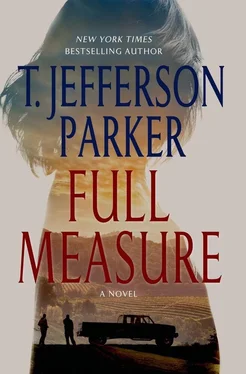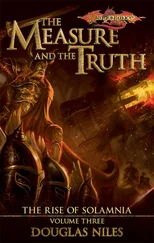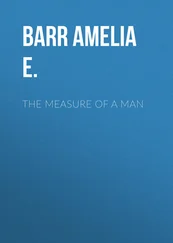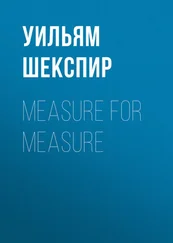“Did you know that Cade Magnus has moved back to town?”
“Of course. I’m the mayor.”
“And you’ve known him for a long time also?”
“Yes. Maybe his whole life, too. We were in fourth and sixth grades together, right here in Fallbrook. It’s a small town.”
“Does Ted Norris seem like the kind of man who might enjoy the racist opinions of Cade Magnus and the Rogue Wolves?”
“I have no idea what Ted enjoys, except complaining that the city spends too much public money on things he doesn’t need. First it was the library. Now I’m sure it’s the lighted crosswalks, or water and blankets for fire victims.”
“Ted Norris spent some time at Pride Auto Repair two days ago.”
“I think that’s still legal.”
Knechtl glanced behind him again. “Do you think it’s interesting that in the last month, Ted Norris has publicly ridiculed you as mayor, Cade Magnus has moved back to Fallbrook, the worst arson fire in the history of North County has killed three, and these two fellows are assembling?”
“I doubt that either of them set the fire.”
“Why? Someone did.”
Evelyn felt affronted that this federal superman would accuse her citizens — though admittedly not her favorite citizens — of such a crime. But she also had the small wriggling thought that one of them could easily have done exactly that. “They just... didn’t.”
“Oh. Do you recognize these people? Press the arrow on the right.”
He handed her a phone and Evelyn took off her sunglasses and looked at the screen. The first was a police mug shot of a thick-necked young man, freckle-faced and handsome in his own way. Next a mug of a slender dark-haired woman, kind of hard-looking. Then a candid shot of another female, which, judging by the faint background, looked taken from far away.
“No. I don’t know them. I’ve never seen them.” She handed him the phone and put her sunglasses back on.
“Are you acquainted with Firooz and Simone Roshdieh?”
“They run the Domino’s Pizza downtown.”
“What about Ibrahim Sadal?”
“He manages the GasPro station. They’re all legal Middle Eastern immigrants, living here peacefully.”
“Are you sure they’re legal?”
“Well, no. I’ll leave it to you to get to the bottom of it.”
“Thank you.” He held out a card.
“You gave me one of those days ago, at City Hall.”
He slipped the card between one of the rocks and a stack of flyers. “Call me if I can help.”
“Help what?”
“Put this nice little town back together.”
“Just catch the arsonist.”
“Doubt not.”
She tended the city booth until late afternoon, a long day indeed, her butt aching from the metal folding chair, her heart troubled. She was surprised that her colleagues in government had let her spend so many hours alone here, disappointed that Brian hadn’t stayed around for long, and that neither Ethan nor Gwen had at least stopped by as she’d asked them to. Although she certainly understood that at age thirteen and eleven they had lives of their own. Selfish little lives, it often seemed.
She also didn’t like that the DHS or HSI or former ICE or JTTF or whoever these people claimed to be were all over Fallbrook, snooping rather than helping. Maybe it was just Max Knechtl’s nonradiant face and personality. Maybe she was just hungry. She walked over to the soup stand sponsored by Major Market. But the big kettles were empty, nothing but thin furrows of soup left drying on the bottoms where the ladles had last come through.
After church Sunday morning Patrick met up with Salimony and Messina in Oceanside. Bostik hadn’t returned calls or messages and Salimony thought he might have just up and gone back to Crescent City. None of them had seen him since the beatdown on the Pendleton beach.
Bostik’s new apartment was in a complex east of downtown, away from the Pacific. It was called the Timbers and Patrick noted the pine trees. The buildings were wood-sided and peak-roofed to suggest an alpine look, with the garages downstairs and the apartments above them. The wooden stairs were solid underfoot as he climbed. Patrick knocked on the door and they waited. He rang the bell but still no one answered and he heard nothing within.
He leaned against the railing as Salimony sprang down the stairs two at a time and Messina lit a smoke. Patrick could smell the pine trees that grew between the buildings. Bostik had grown up in a house near a pine forest and Patrick wondered if the Timbers reminded him of home. He thought of the Mako now trailered out in the barn, and felt the same giddy satisfaction he’d felt years ago when he saw the first bicycle that was his, brand-new, black, and gleaming, waiting for him under the Christmas tree. It was interesting to him that before he bought the Mako it was just a used boat of debatable value, but after he’d handed over the money and hitched the trailer to his truck, it became the most valuable inanimate thing in his life. His present and his future. And it added to Patrick’s satisfaction that Iris had been there when he bought the boat, because she was his present and future too, in a way that felt real but almost too precious and fragile for him to look at straight on. She had been there. She had seen and approved. “I bought a boat,” he said to Messina.
“Then let’s go fishin’.”
“You got it.”
“We could have a perch fry.”
“We can get yellowtail out there, even tuna when the water is right.”
“I’ll bet Boss went back to Crescent City.”
Salimony came back with the manager, a husky ex-Marine who pounded on the door and got the same response that Patrick had gotten. He pounded again. “I don’t know what to tell you. He paid his deposit and first month, and he didn’t say anything about taking a trip. The policy here is, if the tenants want their mail collected or their patio plants watered, they have to let me know. Or set it up with a friend.”
“Well, is his car here?” asked Salimony.
“The garage doors are remote and I don’t keep spares,” said the manager. “You can open it by hand, but if you damage it, you pay to replace it.”
The four men went down the stairs and around to the garage entrance and Messina knelt and spread his fingers under the weatherproofing and lifted. The door rolled up noisily and Patrick first saw the upended patio chair, then the shoes and pants, then the limp white arms, bare torso, and acutely angled head of John Bostik, USMC, roped to a garage rafter. The smell was bad and his eyes were bloodshot protrusions in the purple swell of his face.
Patrick’s mouth parted open as he looked at his friend, but no words came. Then he was aware of setting the chair upright near Bostik and stepping onto it, his pocketknife out and open and in his hand. He heard himself order them to hold the body, then he reached up and started sawing through the rope. He stood almost face-to-face with Bostik. The smell and the sight of him sickened Patrick. He heard himself speaking, words of comfort but no joy, a soft monotone, a caress. Then the knife hissed through and the rope jumped and Bostik glided down feet first, borne by friends. Patrick helped them settle Bostik to the oil-stained garage floor, then worked off his dog tags. Patrick found a roll of blue shop rags and broke off two and set them over Boss’s face. Salimony went outside and puked in the bushes. Then the three of them sat down around Bostik, cross-legged, stunned and silent.
And you realize this is not what he had promised. This was not the mission he had accepted. He beat the hajjis, beat the heat and the cold and the snakes and the odds, and he made it home. But the war came after him, across mountains, oceans, and time. And it caught up. So he kicked the chair and finally got away. You know that a part of him will stay with you and a part of you will go with him. And this is what you all had promised, to be always faithful — semper fidelis.
Читать дальше












